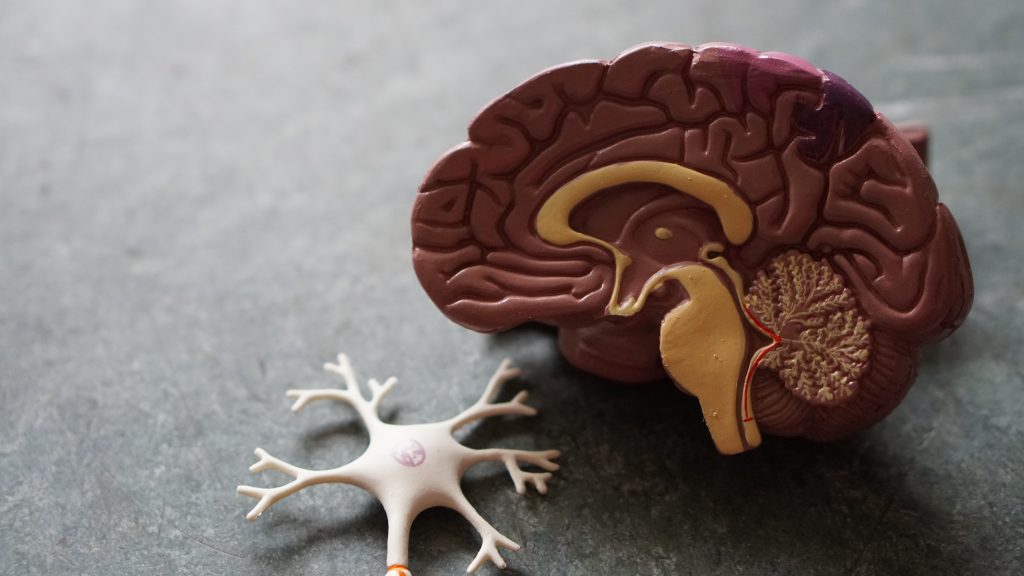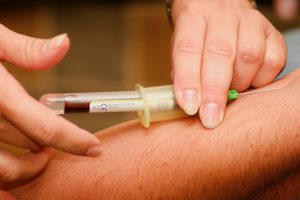Alzheimer’s disease (AD) is a progressive neurodegenerative disease that is characterized by the loss of neurons and synapses in the brain. It is the most common cause of dementia, a general term for loss of memory, language, problem-solving, and other thinking abilities that are severe enough to interfere with daily life.
What causes Alzheimer’s disease?
The exact cause of Alzheimer’s disease is unknown, but it is thought to be caused by a combination of genetic and environmental factors. One of the most important genetic risk factors for AD is the presence of the apolipoprotein E (APOE) gene. People who have the APOE4 gene are more likely to develop AD than those who do not have this gene.
Other risk factors for AD include:
- Age: AD is more common in older adults, especially those over the age of 65.
- Family history: People who have a family history of AD are more likely to develop the disease themselves.
- Head injury: People who have had a head injury are more likely to develop AD later in life.
- Other medical conditions: Some medical conditions, such as diabetes and high blood pressure, may increase the risk of developing AD.

What are the symptoms of Alzheimer’s disease?
The symptoms of Alzheimer’s disease typically develop slowly and gradually worsen over time. The early symptoms of AD may be mild and difficult to notice. Some common early symptoms include:
- Memory loss: Difficulty remembering recent events or conversations.
- Difficulty with problem-solving and decision-making.
- Difficulty with language: Difficulty finding the right words or understanding what others are saying.
- Changes in mood and personality: Becoming withdrawn, irritable, or depressed.
As the disease progresses, the symptoms become more severe and can interfere with daily life. Some common symptoms of moderate to severe AD include:
- Severe memory loss: Difficulty remembering people, places, and events.
- Disorientation: Becoming lost in familiar places or having difficulty finding the way home.
- Difficulty with communication: Having difficulty speaking or understanding language.
- Difficulty with activities of daily living: Having difficulty bathing, dressing, eating, or toileting.
How is Alzheimer’s disease diagnosed?
There is no single test to diagnose Alzheimer’s disease. Doctors typically diagnose AD based on a patient’s medical history, a physical exam, a cognitive assessment, and brain imaging tests.
How is Alzheimer’s disease treated?
There is no cure for Alzheimer’s disease, but there are treatments that can help to slow the progression of the disease and manage the symptoms. Some common treatments for AD include:
- Medications: There are several medications available that can help to improve cognitive function and slow the progression of AD. These medications work by targeting different aspects of the disease, such as the buildup of amyloid plaques and tau tangles in the brain.
- Non-drug treatments: Non-drug treatments for AD can help to improve the quality of life and reduce the symptoms of the disease. Some common non-drug treatments include cognitive stimulation therapy, physical activity, and social engagement.

What is the future of Alzheimer’s disease research?
There is a lot of research being done on Alzheimer’s disease, and there are many promising new treatments in development. Some of the most promising areas of research include:
- Developing new drugs to target the root causes of AD, such as the buildup of amyloid plaques and tau tangles in the brain.
- Developing new treatments to protect and repair neurons in the brain.
- Developing new ways to diagnose AD earlier and more accurately.
- Developing new ways to prevent AD from developing in the first place.
A hopeful future for people with Alzheimer’s disease
Although there is no cure for Alzheimer’s disease yet, there is a lot of hope for the future. Thanks to the hard work of researchers around the world, there are many promising new treatments in development. With continued research and investment, we can one day find a cure for Alzheimer’s disease and give people with the disease the chance to live long and fulfilling lives.
In addition to the research being done on new treatments, there are also many things that can be done to support people with Alzheimer’s disease and their families. Some things that you can do include:
- Educate yourself about Alzheimer’s disease.
- Provide support and encouragement to people with Alzheimer’s disease and their families.
- Get involved in Alzheimer’s disease advocacy.
- Donate to Alzheimer’s disease research and support organizations.
By working together, we can make a difference.
What can you do to help?
If you or someone you know has Alzheimer’s disease, there are many things that you can do to help. Here are a few ideas:
- Learn about the disease. The more you know about Alzheimer’s disease, the better equipped you will be to understand and support the person you care for.
- Be patient and understanding. Alzheimer’s disease can be frustrating and challenging for both the person with the disease and their caregivers. It is important to be patient and understanding and to remember that the person with Alzheimer’s disease is not doing this on purpose.
- Create a safe and supportive environment. Make sure that the person with Alzheimer’s disease feels safe and comfortable in their surroundings. This may involve making changes to their home or environment or providing them with companionship and support.
- Encourage them to stay active and engaged. Physical activity and mental stimulation are important for people with Alzheimer’s disease. Encourage them to participate in activities that they enjoy and that challenge them mentally.
- Provide help and support as needed. As the disease progresses, the person with Alzheimer’s disease will need more help and support. This may include help with activities of daily living, such as bathing, dressing, and eating. It is important to provide this help and support in a way that respects the person’s dignity and independence.
Alzheimer’s disease is a challenging disease, but there is hope for the future. With continued research and support, we can one day find a cure for Alzheimer’s disease and give people with the disease the chance to live long and fulfilling lives.







